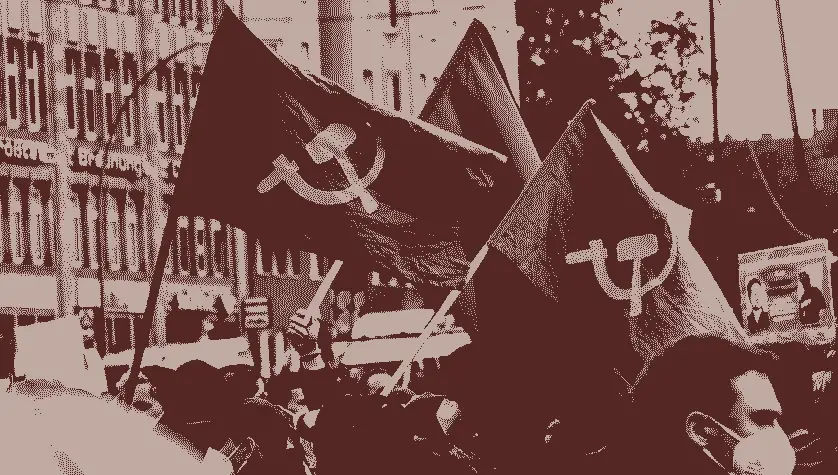Communism is the system of administration most often associated with Karl Marx’s ideas, a German philosopher who articulated his vision for a utopian society in 1848’s The Communist Manifesto. Marx felt that capitalism’s concentration on profit and private ownership resulted in citizen inequality.
Thus, his objective was to develop a system that supported a classless society where everyone participated in the fruits of work and the state government exercised complete control over all property and wealth. As a result, no one would try to be superior to others, and greed would no longer be a motivating factor.
Then communism would eliminate the disparity between wealthy and poor, end labor exploitation, and liberate the poor from tyranny.
Origins of Communism
However, Marx did not invent the fundamental principles of communism. They were debated in ancient times by Plato and Aristotle, but Marx transformed them into a popular ideology that was subsequently put into effect. Marx’s ideal society was predicated on economic equality and justice.
Marx argued that private property encouraged greed and that capitalism was to blame for society’s troubles. He asserted that the issues arose from the Industrial Revolution.
The emergence of factories, dependence on machinery, and mass production enabled tyranny and the formation of a proletariat, or working class.
Simply said, manufacturing fuelled the economy under a capitalist society and privileged minority-owned factories. Moreover, it necessitated the employment of a considerable number of workers by the factory owners. As a result, the rich few exploited the workers who needed to survive in this climate.
Communism & Totalitarianism
Thus, Marx laid out his strategy for liberating the proletariat or freeing them from the burden of work. His utopia was envisioned as a world where individuals worked as hard as possible, and everyone participated in the prosperity.
No one group would triumph if the state-controlled the economy and everyone gave up their property. Marx articulated this idea in his Manifesto, but communism’s reality fell well short of it.
For most of the twentieth century, almost one-third of the world’s population lived in communist countries—countries ruled by totalitarian leaders who dominated everyone else’s life. Communist officials determined salaries established prices, and distributed wealth. Western capitalist nations waged a losing battle against communism, and the majority of communist states finally crumbled.
Marx’s ideal was never realized since it needed a universal revolution, which never occurred. By 2020, North Korea, Vietnam, China, Cuba, and Laos will still have communist regimes.
Karl Marx
After reading Karl Marx’s life story, I realized that there are many inconsistencies between what he says and what he actually did during his life. Karl Marx came from a wealthy family, which is a little ironic, considering he liked to talk about the rights of the lower classes. He was privileged enough to have the ability to study at university and receive a PhD, back in those days, you had to be a part of the 1% to have the opportunity to get a doctorate.
Karl Marx was an overweight, angry and lazy scumbag, who never wanted to get a job to use that PhD of his. Luckily for this extremely wealthy and privileged man, he was able to marry a girl who was from an even wealthier family, which meant that Karl Marx didn’t have to work.
Later in life, Karl Marx had several kids and the family’s money was running out because Karl was so lazy. I believe some of his children died from preventable diseases, due to a lack of money, again because Karl didn’t want to work. Karl Marx’s wife’s parents left them an inheritance, which Karl used to invest in the stock market and spend money of lavish clothing, not exactly the communist lifestyle hey. Anyway, this is what I learned about Karl Marx.
Here are a few other articles on economic topics you might like to have a look at:
- What’s DEFLATION in Simple Words?
- What is Capitalism?
- What is Feudalism?
- Guide to renting in Australia
- What is the meaning of Socialism?
- What is Hyperinflation?
- Definition of Geopolitics?
- Which country is the most corrupt?
- Is Australia a feudal economic system?
What are the disadvantages of communism?
The state exercises complete control over all of a society’s essential resources, including property, production, education, agriculture, and transportation, under communism. Essentially, communism envisions a society in which everyone benefits equally from effort and the class system is eliminated via income redistribution.
Communism has been successfully spread around the world, as one of the most significant economic doctrines of all time, and understanding its impact is critical to comprehending both past and present events.
Furthermore, the war between communism and capitalism during the Cold War was unquestionably the most important conflict of the twentieth century.

